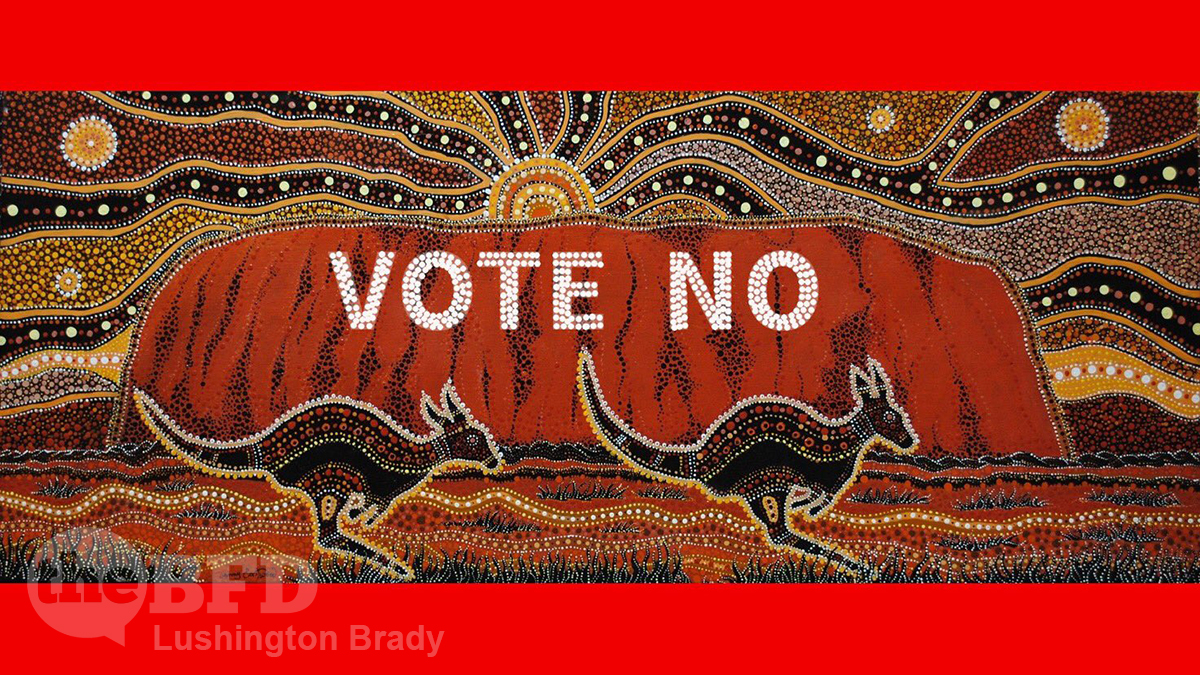OPINION
It’s a generally accepted maxim of Australian politics that state and federal politics have little to do with each other. Mostly, it’s fairly true-ish, but, at the same time, sometimes state bells can chime very ominously for federal politics.
For the last few years, the floundering of the Coalition in Canberra has been mirrored by the even-more-dire straits of state parties. Particularly in WA, Victoria and Queensland, where Covid-ascendant premiers and wet, blue-green Liberal leaders have conspired to see state parties consigned to the outer darkness.
But an ill wind is blowing in the Labor states. Dictator Dan has cut and run in Victoria, Pluckachook is barely hanging on in Queensland, and… whoever it was who took over from Mark McGowan, after his vanishing act, is facing a resurgence of a Liberal party that was all-but wiped off the electoral map at the last election.
There has been no sadder place in the world these past few years than the Liberal Party stand at the Perth Royal Show.
And no wonder, when the entire parliamentary Liberal Party could comfortably fit in a small tent.
Perched opposite the Police Pavilion and just a few metres down from the Agriculture Hall of Fame, the pop-up tent has long been a forlorn sight at the annual show as the party suffered through humiliating state and federal election defeats.
This year, however, the MPs, staffers and volunteers manning the stand have noticed a distinct change in mood. More and more people have approached the stand this week – grabbing the Liberal-branded show bags stuffed with notebooks, fridge magnets and a mini Australian flag – than have done so for years.
More importantly, staffers manning the stand are noticing a remarkable uptick in punters voluntarily approaching the tent for a chat.
So, what’s changed in WA? Is it all just life-after-Sneakers malaise?
The key difference, they say, is the voice.
This year, in addition to the Liberal Party bunting, the stand features corflutes and posters urging punters to vote No “to the voice of division”.
WA, more than any other state, has after all got to experience the lived reality of just what the Voice would look like. The state’s Indigenous Cultural Heritage laws, which saw landowners with little more than a large suburban block slugged with compulsory five-figure “indigenous cultural assessment” fees, were such a debacle that the government scrapped them completely after just a couple of months.
But numerous polls have consistently shown support for the voice in WA is among the lowest anywhere in the country, pointing towards a rare and much-needed political win for the Liberals in the west.
[West Australian] Liberal senator Michaelia Cash has been one of the opposition’s loudest voices on the referendum. She told The Australian the “overwhelming feedback” from the Royal Show tent was praise for the party’s stance on the referendum.
“I’ve spent a lot of time talking directly with Western Australians about the referendum and it is clear to me that they want the best for Indigenous Australians, but many have failed to be convinced the voice is the best way to go about it,” she said.
It’s a clear case of federal and state politics intertwining – in the worst possible way for the Labor incumbents in both Perth and Canberra.
“They don’t trust the Prime Minister because of the lack of detail about the voice. They tell me they don’t want to put something permanently in our Constitution when they are not being told the details of how it will operate.”
Tellingly, even the wealthy, right-on Teal voters of the Curtin electorate are set to reject the Voice by almost two-to-one.
Not all in the party are so encouraged by the inroads made on the voice. Moderates who believe the party erred both morally and politically in choosing to oppose the referendum believe the anecdotal increase in support on the ground in the west is a false dawn.
They say the party has simply attracted the fringe types who have previously been drawn to One Nation or Clive Palmer’s United Australia Party – voters who can make a lot of noise but who typically don’t stick – while further alienating the moderate middle who have gravitated to Labor in recent elections.
And there’s the nub of the Liberals’ malaise. These so-called “moderates” are really just wet, weak, wannabe Greens in blue ties, who utterly despise the mortgage-belt, middle-Australia voters who are supposed to be the Liberals’ base. These “moderate” clowns have been running the show, from WA to Victoria, like National in NZ, chasing after the Greens, shouting, ‘Us, too!’
Of course everyone to the right of Klaus Schwab and Greta Thunberg looks like a ‘fringe type’ to them.
The referendum result won’t be fatal to the party, and nor will it be a panacea. Instead, those running the WA Liberals believe it could be a helpful marker on the party’s long journey back.
The Australian
In other words, a clear signal to put “moderates” back in their soggy little green boxes, and return to being a true, centre-right party that appeals to ordinary Australians, not teal elites. People who drive utes, not Teslas.
Until they do, they’ll be condemned to irrelevance.

